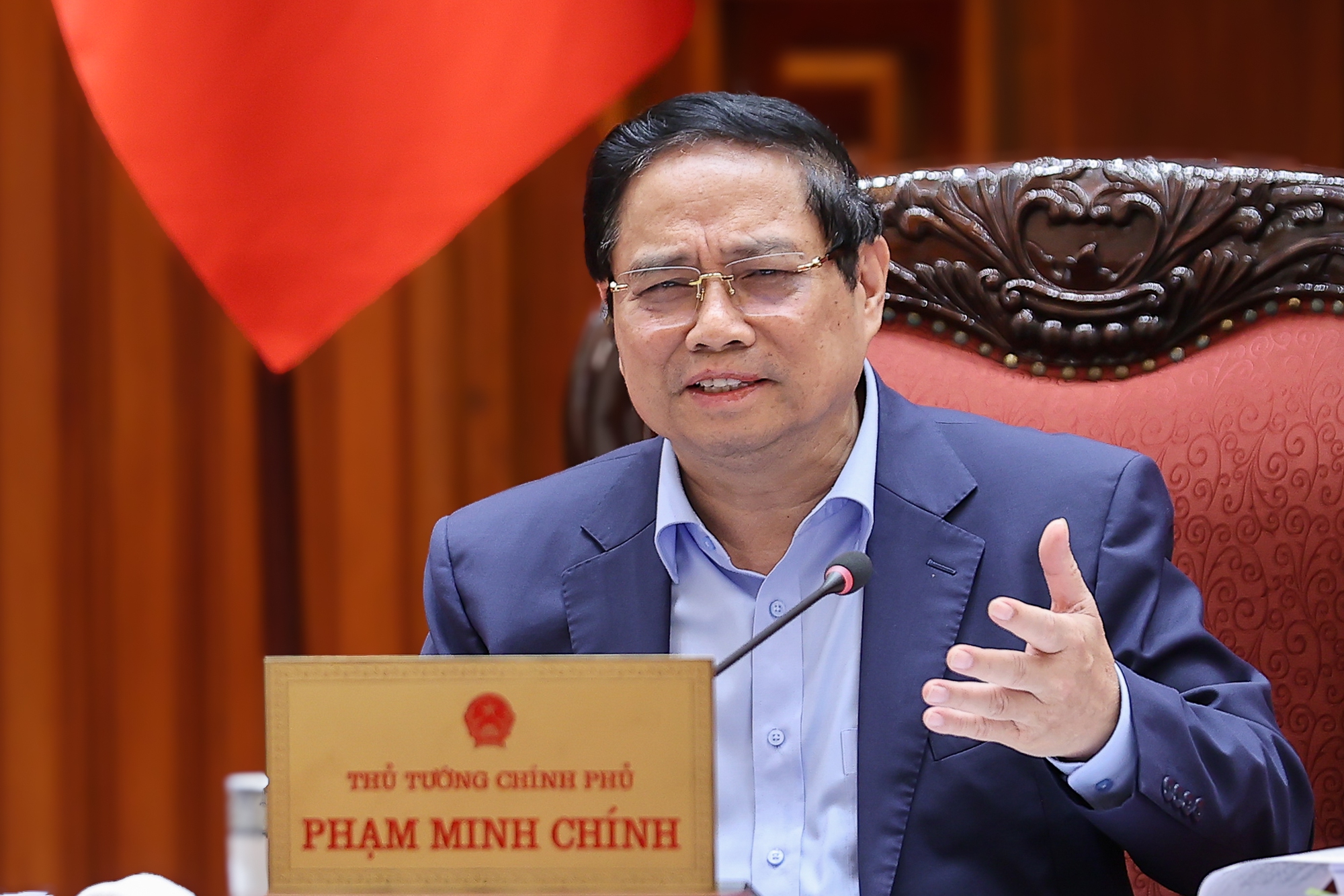At a meeting of the standing board of the government's party committee regarding the state economic development project, prime minister Pham Minh Chinh reiterated that the party's platform and the constitution affirm Vietnam's commitment to a socialist-oriented market economy under the party's leadership and state management.
According to the prime minister, the state economy is an integral part of the national economy. The government's guiding principle is for the state economy to play a leading role, pioneering, guiding, regulating, and connecting various economic sectors. The nation's resources will be managed strictly, ensuring fairness, openness, and transparency in access and utilization.
"All economic sectors should compete on equal footing. The state will handle what the private sector cannot, not what they can do better," he stated, adding that Vietnam needs increased socialization and continued equitization for businesses to operate more efficiently, preventing the loss of state resources.
 |
Prime Minister Pham Minh Chinh speaks at a meeting on the State Economic Development Project, 22/9. Photo: VGP |
Prime Minister Pham Minh Chinh speaks at a meeting on the State Economic Development Project, 22/9. Photo: VGP
The steering committee for the state economic development project, established by prime minister Pham Minh Chinh in July, is tasked with enhancing the effectiveness of this sector. The project will be submitted to the politburo for a dedicated resolution. Previously, resolution 68 on private sector development was issued by the politburo in May.
The prime minister noted that the state economic development project's scope encompasses land, resources, public assets, the state budget, national reserves, various funds, state-owned enterprises, credit institutions, and public service units.
The objective is to improve the quality and efficiency of the state economy while maintaining its leading role. It also aims to ensure national economic, financial, monetary, energy, and food security, along with social security, progress, and equity.
The project requires a comprehensive approach to unlock and mobilize resources for development within the state economy. Its presentation must be concise, action-oriented, feasible, and effective. Additionally, it needs to clearly distinguish between criminal, administrative, and civil liabilities, and between legal entities and individuals when addressing violations. In essence, when dealing with misconduct and civil economic matters, civil, economic, and administrative measures should be prioritized.
The prime minister suggested a streamlined and flexible management model for state resources and enterprises, adaptable to real-world situations. This involves increased decentralization, empowerment, administrative procedure reduction, less pre-inspection, and more post-inspection. He called for a review of different target groups to propose breakthrough solutions, particularly in science and technology development, innovation, and digital transformation.
Last year, the total assets of 671 state-owned enterprises (473 wholly state-owned and 198 with over 50% state ownership) reached over 5.6 quadrillion VND, a 45% increase compared to 2023. These enterprises achieved a total revenue of nearly 3.3 quadrillion VND, a 24% increase, and pre-tax profits of nearly 227,500 billion VND, an 8% increase. Their contribution to the state budget was almost 400,000 billion VND, up 9%.
Phuong Dung












